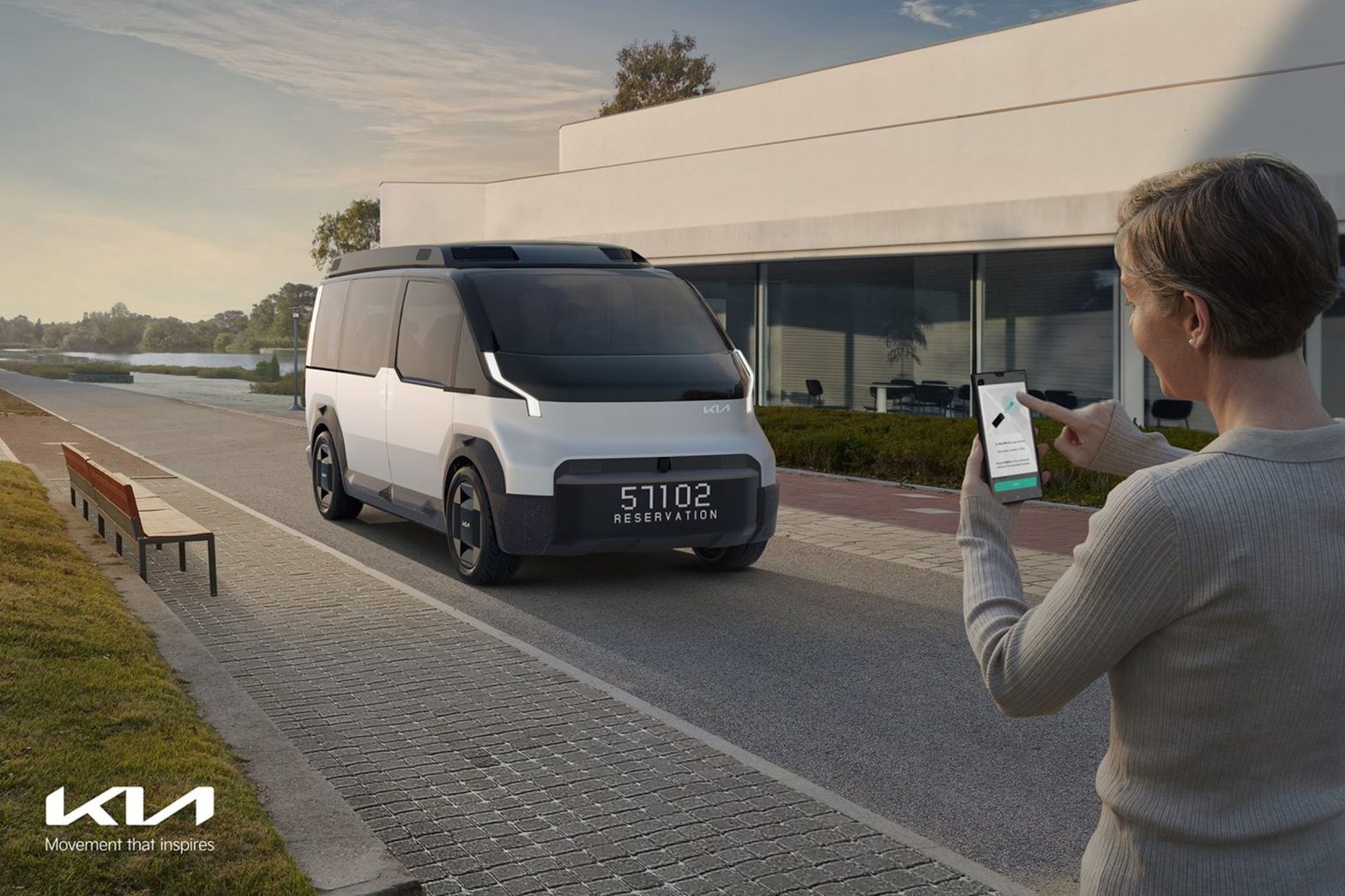/
Kia says the lineup of futuristic vans and trucks will redefine commercial fleets. Uber needs to get more drivers into EVs to fulfill its 2040 climate pledge.
Share this story
:format(webp)/cdn.vox-cdn.com/uploads/chorus_asset/file/25217205/21654_PV5_Concept.jpg)
Kia and Uber have signed an memorandum of understanding to use the automaker’s newly announced PBV modular electric vehicles for ridehailing.
PBV, which stands for Platform Beyond Vehicle, was introduced during CES in Las Vegas as a family of EVs built on a flexible vehicle architecture, with different swappable body types. The vehicle can be transformed from a minivan to a full-size van to a small truck, depending on the specific need. The driver cab remains fixed while the rest of the vehicle is interchangeable, like a real-life Duplo set.
One of the possible variations is the PV5, a midsized electric van that Kia says is designed for ridehailing, delivery, and utilities. Uber wants to add the PV5 as an option for its drivers, in the hopes of fulfilling its pledge to go all-electric in all markets by 2040.
Uber says the purpose of the deal with Kia is “to identify optimal specifications for PBV models, with the possible further integration of technology and services to benefit drivers and ride hailing users alike.” The two companies will work together on the creation of “proofs of concept, prototypes, and the production of PBVs tailored to the needs of drivers that use the Uber platform.”
Uber is under pressure from governments around the world to get more of its drivers into EVs to reduce tailpipe pollution and fight climate change. Of course, getting the hundreds of thousands of people who drive for Uber to switch to EVs will be no easy task. Ridehail drivers are classified as independent contractors, and many use their personal cars to drive for not just one but several gig economy companies. Uber can’t just force all its drivers to make the switch without jeopardizing their status as freelancers.
Conor Ferguson, a spokesperson for Uber, said the company would have more to say about financing the purchase of Kia’s PBV vehicles closer to when they are available.
Currently, Uber works with automakers to offer drivers flexible leases on EVs and incentives like added bonuses on each trip they do in an electric vehicle. Uber says it has over 74,000 drivers using electric vehicles in North America and Europe.
Uber previously made a deal with UK-based startup Arrival to acquire its EVs, but that company is barely staying afloat these days.
